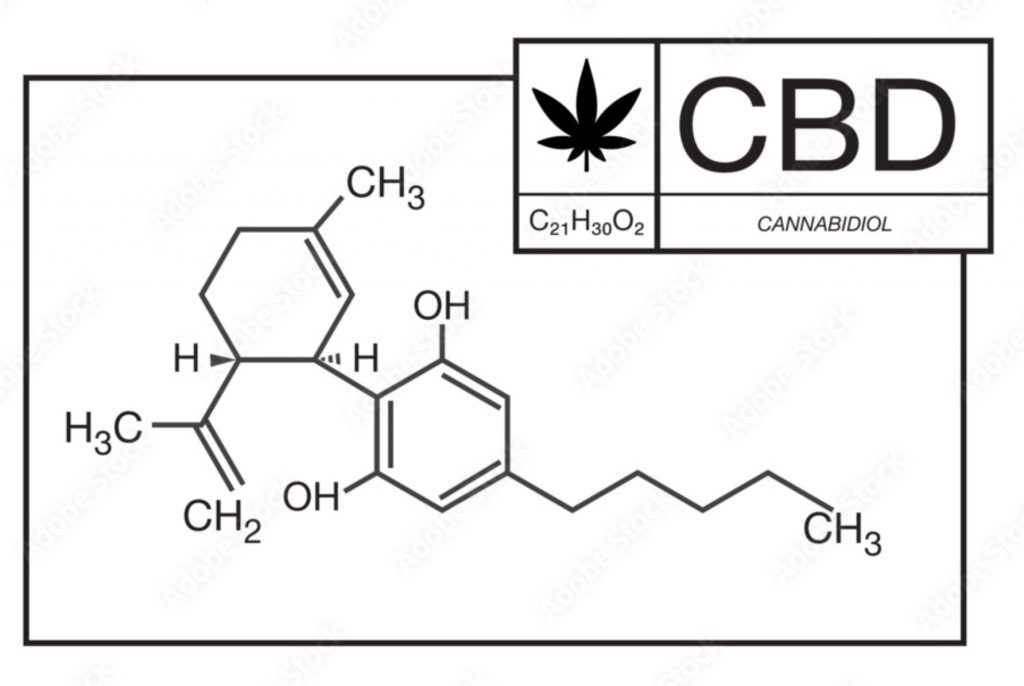In recent years, Cannabidiol (CBD) has surged in popularity, captivating the attention of consumers, researchers, and healthcare professionals alike. Derived from the cannabis plant, CBD is one of over a hundred compounds known as cannabinoids.
Unlike its more infamous cousin, Tetrahydrocannabinol (THC), CBD is non-psychoactive, meaning it doesn’t induce the “high” commonly associated with cannabis use. This key difference has paved the way for CBD’s widespread acceptance and exploration of its potential health benefits.

Understanding CBD
CBD interacts with the body’s endocannabinoid system (ECS), a complex network of receptors and neurotransmitters that regulate various physiological processes such as mood, pain sensation, appetite, and memory.
By influencing the ECS, CBD is believed to exert a range of therapeutic effects, making it a subject of intense scientific interest.
Health Benefits
Research into the potential health benefits of CBD is ongoing, with promising findings emerging across various areas:
- Pain Management: CBD has demonstrated analgesic properties, making it a potential option for managing chronic pain conditions such as arthritis, neuropathic pain, and multiple sclerosis.
- Anxiety and Depression: Studies suggest that CBD may possess anxiolytic and antidepressant effects, offering relief for individuals struggling with anxiety disorders, post-traumatic stress disorder (PTSD), and depression.
- Neuroprotective Effects: CBD’s neuroprotective properties are being investigated for their potential in treating neurological disorders like epilepsy, Alzheimer’s disease, and Parkinson’s disease.
- Anti-inflammatory Properties: CBD exhibits anti-inflammatory properties, which could be beneficial in alleviating symptoms associated with conditions like inflammatory bowel disease (IBD) and rheumatoid arthritis.
- Sleep Disorders: CBD may help improve sleep quality and regulate sleep patterns, offering potential relief for individuals suffering from insomnia and other sleep disorders.
Forms of CBD
CBD is available in various forms to suit different preferences and needs:
- CBD Oil/Tinctures: Typically administered sublingually, CBD oils and tinctures offer a convenient way to consume CBD, with effects usually felt within 15-30 minutes.
- Edibles: CBD-infused edibles, such as gummies, chocolates, and beverages, provide a tasty and discreet option for consumption, though effects may take longer to manifest due to digestion.
- Topicals: CBD-infused creams, lotions, and balms are applied directly to the skin, offering localized relief for pain, inflammation, and skin conditions.
- Capsules and Pills: Encapsulated CBD supplements provide a precise and easy-to-administer dose, ideal for individuals seeking a convenient option for daily consumption.
- Vaping: CBD vape products allow for rapid absorption of CBD into the bloodstream, offering quick relief for acute symptoms, though caution is advised due to potential health risks associated with vaping.
Safety and Legal Status
CBD is generally well-tolerated, with few reported adverse effects such as fatigue, diarrhea, and changes in appetite or weight.
However, interactions with certain medications are possible, so it’s essential to consult with a healthcare professional before incorporating CBD into your wellness regimen, especially if you’re taking other medications.
In terms of legality, the regulatory landscape surrounding CBD varies from country to country and even within different states or regions. While CBD derived from hemp containing less than 0.3% THC is federally legal in the United States, other jurisdictions may have different regulations, so it’s crucial to familiarize yourself with local laws and regulations.
Conclusion
Cannabidiol (CBD) represents a fascinating and promising avenue in the realm of natural health and wellness. With its diverse range of potential benefits and various consumption options, CBD has garnered significant attention as a natural remedy for numerous ailments.
However, further research is needed to fully understand its mechanisms of action and therapeutic potential. As with any supplement or medication, it’s advisable to consult with a healthcare professional before integrating CBD into your healthcare routine to ensure safe and effective use.
As research continues to unfold, CBD’s role in promoting health and well-being may become even more pronounced, offering hope for individuals seeking alternative approaches to improving their quality of life.